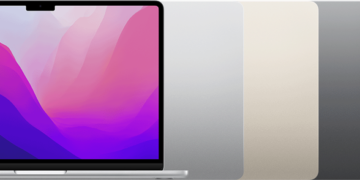Navigating WhatsApp Video Call Privacy Settings with User Drawbacks
Introduction:
WhatsApp, one of the world’s most popular messaging apps, offers a convenient and feature-rich platform for connecting with friends, family, and colleagues. Alongside its messaging capabilities, WhatsApp also provides a video call feature that allows users to have face-to-face conversations regardless of geographical distance. However, it is important to understand the privacy settings associated with WhatsApp video calls and be aware of potential drawbacks. In this article, we will explore the privacy settings of WhatsApp video calls and discuss some user drawbacks that should be considered.
Privacy Settings for WhatsApp Video Calls:
- Encryption: WhatsApp boasts end-to-end encryption for all messages, calls, photos, and videos shared on the platform. This means that only the intended recipient(s) can access the content, ensuring a high level of privacy and security. It’s important to note that this encryption applies to one-on-one video calls. Group video calls, on the other hand, are encrypted but accessible to all participants in the call.
- Call Blocking: WhatsApp provides the option to block specific contacts from initiating video calls with you. This can be useful in preventing unwanted calls and maintaining privacy. By accessing the “Block” feature within the app, you can choose which contacts are not allowed to contact you via video calls.
- Privacy Settings: WhatsApp offers privacy settings that allow you to control who can see your online status, profile photo, and status updates. By adjusting these settings, you can restrict visibility to only your contacts or choose to share this information with a broader audience. However, it’s worth noting that these privacy settings are not specific to video calls but apply to your overall WhatsApp usage.
User Drawbacks of WhatsApp Video Calls:
- Limited Participants in Group Video Calls: WhatsApp limits the number of participants in a group video call to a maximum of eight people, including yourself. While this is sufficient for most personal and small group conversations, it can be restrictive for larger meetings or gatherings.
- Reliance on Stable Internet Connection: Like any video calling service, WhatsApp video calls require a stable and strong internet connection to function properly. Poor connectivity can result in dropped calls, lag, or pixelated video quality. This drawback is inherent to any online video calling service and is not specific to WhatsApp.
- Mobile Data and Battery Consumption: Video calls consume a significant amount of mobile data, particularly if you are on a limited data plan. Additionally, video calls can drain your device’s battery quickly. It’s essential to be mindful of these factors, especially when using WhatsApp video calls on the go.
- Lack of Advanced Features: Compared to dedicated video conferencing platforms, WhatsApp video calls have limited features such as screen sharing, virtual backgrounds, and recording capabilities. If you require advanced functionalities for professional or collaborative purposes, using specialized video conferencing tools may be more suitable.
Conclusion:
WhatsApp’s video call feature provides a convenient and widely used means of connecting with others. By understanding the privacy settings available, users can have more control over their video call experiences. However, it’s important to consider the drawbacks associated with WhatsApp video calls, such as limited group size, reliance on stable internet connectivity, data consumption, and lack of advanced features. Assessing your specific needs and considering these factors will help you determine if WhatsApp video calls align with your requirements or if alternative video calling platforms may be better suited to your needs.

























